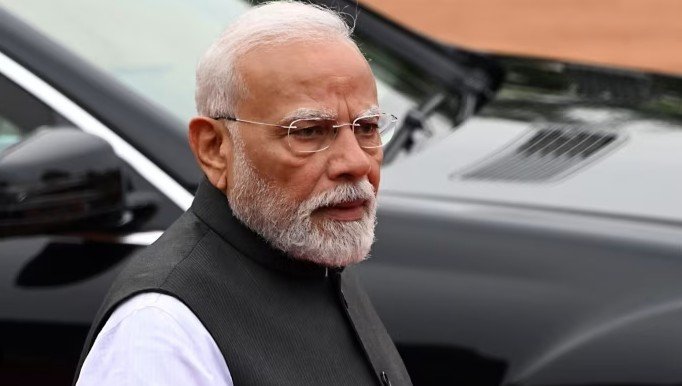With trade tensions rising between India and the United States, Prime Minister Narendra Modi has stressed that India stands by its farmers, fishers, and dairy producers. This statement is a subtle response to President Donald Trump’s recent decision to slap a 50% tariff on Indian goods. Speaking at the MS Swaminathan Centenary International Conference in New Delhi, Modi said that the well-being of India’s farming community is a top priority, no matter the political cost. This tariff increase, which began on August 6, has widened the gap between New Delhi and Washington, mainly because India won’t budge on agriculture and dairy trade issues.
A Firm Position for Farmers
Celebrating the 100th birthday of Professor MS Swaminathan, known as the father of India’s Green Revolution, PM Modi delivered a strong message at the Indian Council of Agricultural Research (ICAR) Pusa. For us, the interests of our farmers, fishers, and dairy producers come first, he stated. India will not back down when it comes to their welfare. He also acknowledged that his position might have consequences, adding, I know I may have to pay a price for this, but I am ready.
The Prime Minister’s comments are a direct reaction to Trump’s executive order, signed on Wednesday, which increased tariffs on Indian imports to 50%. This action, intended to pressure India to stop trading oil with Russia, has caused worry about its impact on key export areas like textiles, leather, and marine products. Trade experts say these sectors could lose up to $10 billion per year.
Supporting Rural India
Modi discussed his administration’s ongoing efforts to improve conditions for rural communities. He mentioned plans to increase farmers’ incomes, lower farming costs, and create new income opportunities. Our government believes that strong farmers are the basis for India’s progress, he said. He mentioned programmes like PM Kisan Samman Nidhi, which gives direct financial help to small farmers, and PM Fasal Bima Yojana, which provides crop insurance. The PM Krishi Sinchayee Yojana has worked to fix irrigation problems, and the creation of 10,000 farm producer organisations (FPOs) has given small farmers more power by uniting them.
Modi also mentioned the PM Dhan Dhanya Yojana, which is aimed at improving infrastructure and financial support in 100 underdeveloped agricultural regions, and the e-NAM platform, which has made it easier to sell farm products. We’re doing more than just giving aid; we’re building confidence among farmers so they can dream bigger, he said, pointing out a decade of policies designed to help rural areas.
The US Tariff Disagreement
The tariff increase comes after trade talks between India and the US stalled, especially on agriculture and dairy issues. The US wants more access to these markets, but India has resisted, citing the cultural and economic importance of its dairy industry, which is the world’s largest. India does not accept imports from cows fed non-vegetarian diets. Trump is also frustrated with India’s oil imports from Russia, which made up 38% of its crude oil needs in 2025. He claims that Russia’s oil revenue helps fund its military actions in Ukraine. India argues that its trade is legal and necessary to keep fuel prices affordable for its 1.4 billion people.
Trump’s decision to impose a 50% tariff on India—higher than the 30% on China and much higher than the 19% and 20% on Pakistan and Bangladesh—has caused concern. India has accused the US of having double standards, especially since Western countries continue to trade with Russia, including the EU’s large imports of Russian gas.
A Test for India-US Relations
This tariff increase could damage the previously friendly relationship between India and the US, which has included events like the 2019 “Howdy Modi’ rally. India is considering how to respond diplomatically and looking at ways to help its exporters. Modi’s unwavering stance demonstrates his commitment to upholding national interests, particularly those of farmers. India’s dedication to its agricultural base remains strong as this trade conflict intensifies, paving the way for a major confrontation with the US.



Comments are closed.